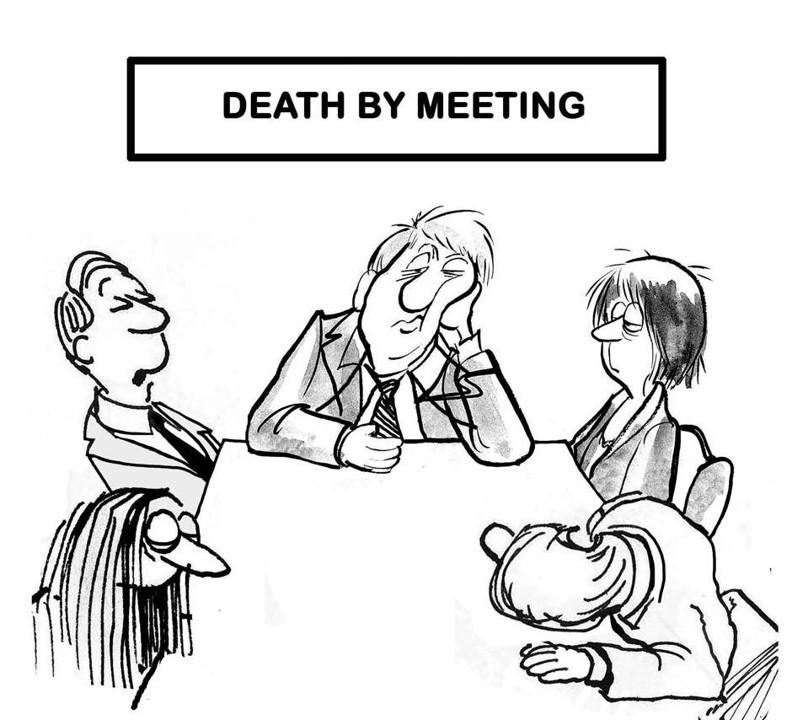It’s Monday morning and you are starting your day by looking at your calendar. As you scan the days ahead, you notice that, once again, you are double-booked. If you are paying attention, you might also simultaneously notice that a wave of tiredness ripples over your body. The day has not even begun and you already need an energy boost!
When this becomes the norm for you and for your organization, it also becomes the most common cause for complaints…too many meetings and many (most?) are ineffective. Of course, at this point your rational mind is already asking practical questions like ‘how can I be expected to be in two places at one time?’, or ‘if I choose one meeting over the other, what is the cost of my decision?’, or ‘what will people think if I say ‘no’ to the double bookings?’. And so the status quo continues even as it drains resilience and fosters employee disengagement. You and your colleagues have the Non-stop Meeting Blues.
Perhaps it is time for you to model leadership courage by asking some hard questions that challenge the status quo for you and for your colleagues? If so, start with these three questions:
When you are the organizer of a meeting:
1. Do you need a meeting? Is it simply a routine meeting that no longer serves a purpose in its current form? Is there a more efficient way to distribute information or gain consensus? Technology may be a helpful ally here.
2. Are the right people in each meeting? Too many people create cluttered confusion and make it less likely that the best decisions will be reached. Do you need more than one person from the same department? Are there people in attendance who have historically been invited but really play no active role? Can you disseminate notes or AI records to those not needed for a decision?
When you have been invited to a meeting:
3. Why are you attending? Is ego the only reason (’if they invited me, I must be important’)? Can attendance be delegated to someone who can benefit from learning what you already know? Can you ask if notes can be distributed to those who cannot attend (AI capabilities can help here)? Do you have the courage to ‘decline’ the invitation so you can prioritize what is important over ‘what screams the loudest’?
As with all innovation, changes to the status quo begin with asking the hard questions and then experimenting with new approaches. Set a simple goal each morning to eliminate or modify one meeting on the calendar. Now, use the cleared time for the things that often fall off the to-do list…self-care, mentoring, strategic planning, etc. Pretty soon, the Non-Stop Meeting blues may become a distant memory.

